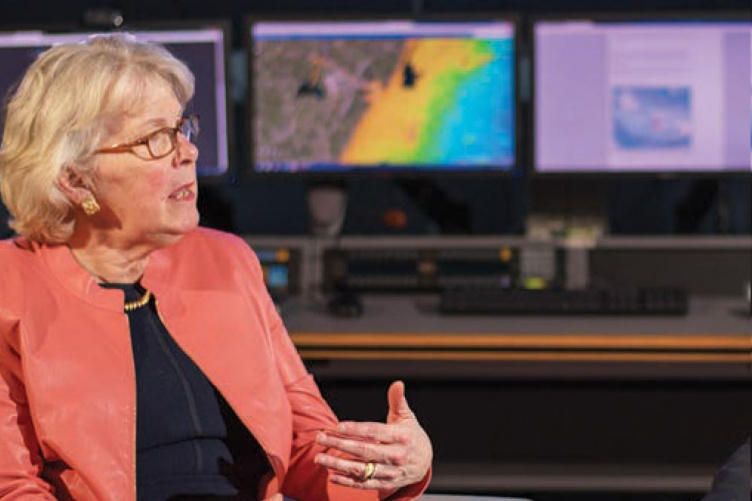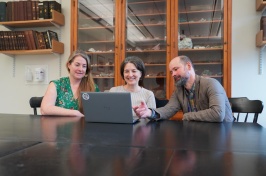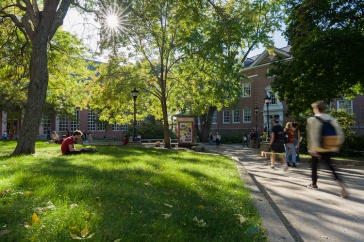
Provost Nancy Targett (above) became UNH’s senior academic administrator in fall 2016. A member of the University of Delaware faculty since 1984, she most recently served as UDel’s acting president and was dean of its College of Earth, Ocean and Environment for more than a decade. Trained as an oceanographer, Targett is a marine biochemist and nationally recognized expert on ocean issues, so UNH’s Center for Coastal and Ocean Mapping was a fitting setting for this conversation with senior vice provost for research Jan Nisbet.
You’ve been here at UNH for six months. What are your impressions?
The excellence I continue to encounter here at every turn has been wonderful — the research, the teaching, the students, the whole academic endeavor. I’m so impressed with the openness of people to try new ideas and different ways to pursue them. Our faculty members have an entrepreneurial spirit that is very forward-looking, and as a university we recognize that teaching and learning take place in all different forms, including research and service. Our students really do outperform expectations, and that’s thanks to the faculty who are working with them and helping them be the best they can be.
What are your observations about research at UNH?
I see spires of excellence in a lot of different areas in this university. Of course, I would be most familiar with the marine program here, which is really well known and well respected; the work they do is just top-notch. But then you’ve got the space physics program, you’ve got the work that’s being done in behavioral health, you’ve got the sustainability program that is really doing such great things, the research on sexual violence, I could go on and on.
What’s your vision for the future of research here?
I believe the foundational disciplines are really important for research, but where research is now and in the future is at the intersection between disciplines. Doing more interdisciplinary work — larger projects that encompass a broader scope — will elevate the research enterprise here at UNH dramatically. We’re seeking holistic answers to things, so it’s a much broader scope and much bigger perspective.
How do you think UNH can work in a more interdisciplinary way?
We need to get people together in the room when you’re first putting a problem on the table. When you do that, you’re getting a range of perspectives to that problem right from the outset. It might cause you to approach it in a whole different way. That sort of innovative collaboration is something we need to strive for. The world is changing, and we have to change with it. We at UNH want to be driving the ship, not just along for the ride — and in many ways, we’re already a model.
As a land-grant institution, we have this commitment to making a difference, to having an impact. I have a quote in my office that says, “Do something amazing every day.” The idea is you want to just try to make a difference. For me, that’s what it’s all about.





















































